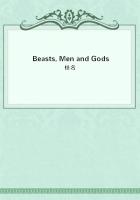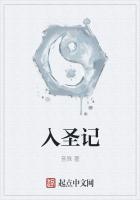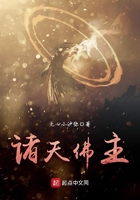OF THE TRAVELLING OF THE UTOPIANS
IF any man has a mind to visit his friends that live in some other town, or desires to travel and see the rest of the country, he obtains leave very easily from the syphogrant and tranibors when there is no particular occasion for him at home: such as travel, carry with them a passport from the Prince, which both certifies the license that is granted for travelling, and limits the time of their return. They are furnished with a wagon, and a slave who drives the oxen and looks after them; but unless there are women in the company, the wagon is sent back at the end of the journey as a needless encumbrance. While they are on the road, they carry no provisions with them; yet they want nothing, but are everywhere treated as if they were at home. If they stay in any place longer than a night, everyone follows his proper occupation, and is very well used by those of his own trade; but if any man goes out of the city to which he belongs, without leave, and is found rambling without a passport, he is severely treated, he is punished as a fugitive, and sent home disgracefully; and if he falls again into the like fault, is condemned to slavery. If any man has a mind to travel only over the precinct of his own city, he may freely do it, with his father's permission and his wife's consent; but when he comes into any of the country houses, if he expects to be entertained by them, he must labor with them and conform to their rules: and if he does this, he may freely go over the whole precinct; being thus as useful to the city to which he belongs, as if he were still within it. Thus you see that there are no idle persons among them, nor pretences of excusing any from labor.
There are no taverns, no alehouses nor stews among them; nor any other occasions of corrupting each other, of getting into corners, or forming themselves into parties: all men live in full view, so that all are obliged, both to perform their ordinary tasks, and to employ themselves well in their spare hours. And it is certain that a people thus ordered must live in great abundance of all things; and these being equally distributed among them, no man can want, or be obliged to beg.
In their great Council at Amaurot, to which there are three sent from every town once a year, they examine what towns abound in provisions and what are under any scarcity, that so the one may be furnished from the other; and this is done freely, without any sort of exchange; for according to their plenty or scarcity they supply or are supplied from one another; so that indeed the whole island is, as it were, one family. When they have thus taken care of their whole country, and laid up stores for two years, which they do to prevent the ill-consequences of an unfavorable season, they order an exportation of the overplus, of corn, honey, wool, flax, wood, wax, tallow, leather, and cattle; which they send out commonly in great quantities to other nations. They order a seventh part of all these goods to be freely given to the poor of the countries to which they send them, and sell the rest at moderate rates. And by this exchange, they not only bring back those few things that they need at home (for indeed they scarce need anything but iron), but likewise a great deal of gold and silver; and by their driving this trade so long, it is not to be imagined how vast a treasure they have got among them: so that now they do not much care whether they sell off their merchandise for money in hand, or upon trust.
A great part of their treasure is now in bonds; but in all their contracts no private man stands bound, but the writing runs in the name of the town; and the towns that owe them money raise it from those private hands that owe it to them, lay it Up in their public chamber, or enjoy the profit of it till the Utopians call for it; and they choose rather to let the greatest part of it lie in their hands who make advantage by it, than to call for it themselves: but if they see that any of their other neighbors stand more in need of it, then they call it in and lend it to them: whenever they are engaged in war, which is the only occasion in which their treasure can be usefully employed, they make use of it themselves.
In great extremities or sudden accidents they employ it in hiring foreign troops, whom they more willingly expose to danger than their own people: they give them great pay, knowing well that this will work even on their enemies, that it will engage them either to betray their own side, or at least to desert it, and that it is the best means of raising mutual jealousies among them: for this end they have an incredible treasure; but they do not keep it as a treasure, but in such a manner as I am almost afraid to tell, lest you think it so extravagant, as to be hardly credible. This I have the more reason to apprehend, because if I had not seen it myself, I could not have been easily persuaded to have believed it upon any man's report.
It is certain that all things appear incredible to us, in proportion as they differ from our own customs. But one who can judge aright will not wonder to find that, since their constitution differs so much from ours, their value of gold and silver should be measured by a very different standard; for since they have no use for money among themselves, but keep it as a provision against events which seldom happen, and between which there are generally long intervening intervals, they value it no farther than it deserves, that is, in proportion to its use. So that it is plain they must prefer iron either to gold or silver; for men can no more live without iron than without fire or water, but nature has marked out no use for the other metals, so essential as not easily to be dispensed with. The folly of men has enhanced the value of gold and silver, because of their scarcity.
Whereas, on the contrary, it is their opinion that nature, as an indulgent parent, has freely given us all the best things in great abundance, such as water and earth, but has laid up and hid from us the things that are vain and useless.















